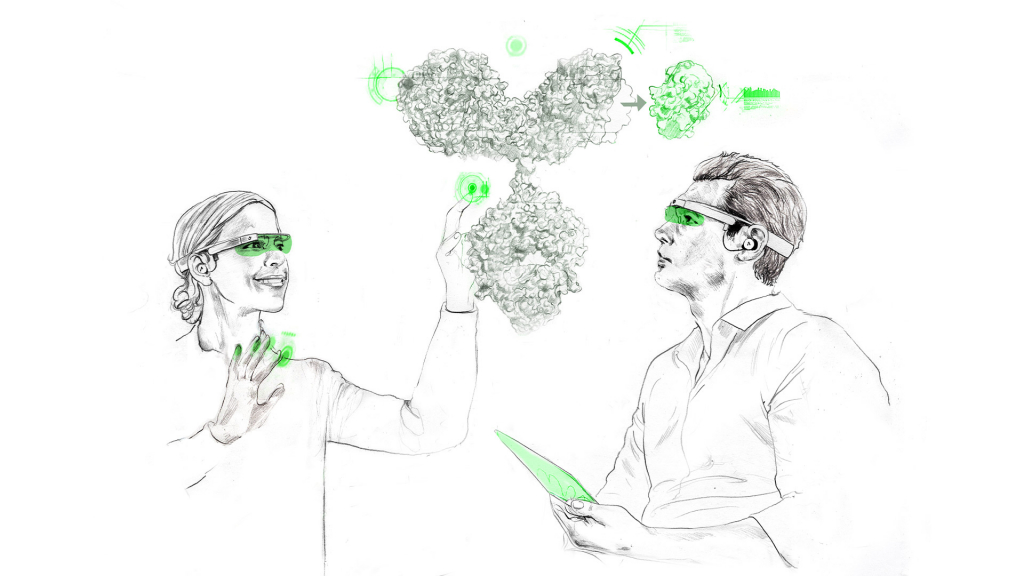Antibodies have been omnipresent in diagnostic and research domains for some decades now, and they are increasingly being utilized in the field of therapy.
Their ability to bind to their target with incredible specificity and affinity has led to them being investigated and developed to become extremely important tools for research. Following on from this, recombinant antibodies have become the most common class of therapeutic proteins and recombinant antibody production became an important topic.
Today, they are being applied in the treatment of a number of disease areas. They offer a number of advantages such as being highly efficient and cost-effective in terms of production while offering predictable performance. Additionally, no animals are harmed in the production process, which is another benefit that is just adding to the growing overall appeal of recombinant antibodies.
The medical importance of antibodies was first discovered in the late 19th century, when scientists were able to prove the positive impact of antibodies in animals suffering from diptheria. Recombinant antibodies, more specifically, are monoclonal antibodies that are generated in vitro using synthetic genes.
Subscribe to our Newsletter
Get all the latest updates, and learn about our advancements in antibody production.
Subscribe now
The basis of all those synthetic genes are mammalian cells, most often obtained from CHO cells (Chinese hamster ovary). But while they may be derived from mammalian cells, unlike monoclonal antibodies recombinant antibodies neither require hybridomas – in other words hybrid cells – nor animals in the production process.
Along with the many advantages they offer in both research and medical applications, this adds to their popularity. Today, monoclonal antibodies make up the largest group of recombinant proteins utilized for human therapy but also for research, namely in the form of in vivo imaging of different diseases. The history of antibodies is quite astonishing.
Despite a long scientific history, a lot of development work is still conducted around monoclonal antibodies and their side effects. A number of alternative expression systems are constantly being researched and explored. However, CHO cells are the most frequently investigated cell lines, accounting for approximately two thirds of studies.
As such, they can be viewed as true workhorses in terms of protein expression. Since the first use of Chinese hamster ovary cells for recombinant protein expression, production processes have steadily improved through numerous advances. It took less than a century for antibodies to go from being unknown proteins to becoming indispensable in the fields of medical and pharmaceutical research.
One of the success factors of recombinant antibodies is that along with their monoclonal counterparts they offer effective therapeutic treatments. Among the diseases that can be treated are:
New areas of application of recombinant antibodies are constantly investigated, and this brings us to a second key factor in terms of success: Recombinant antibodies can be widely used in biomedical science and toxicological research – and they have the added benefits of offering increased reproducibility and control along with a decreased production time.
The main factors influencing the high yield of a production process are the time to accumulate a desired amount of biomass, the process duration, and the specific productivity. With a track record of more than 100,000 transfections performed and more than 17,000 antibodies delivered, evitria is an established expert in providing antibody expression services and antibody engineering as well as custom recombinant antibody to a global clientele.
Find a list of all service providers for recombinant antibodies in the article: Antibody production companies

It has been more than three decades since the first monoclonal antibody was approved by the FDA, the US Food and Drug Administration, in 1986. During this time, antibody engineering has dramatically evolved and monoclonal antibodies have become one of the most common tools in biomedical science and medicine.
However, their use of animals in the production process has led to several governments banning them in favor of in vitro procedures. A report by the EU Reference Laboratory for Alternatives to Animal Testing has established that non-animal derived antibodies are equivalent to those generated using animal immunization methods.
This means that the requirement for animals where antibodies are generated is obsolete and serves to eliminate a number of ethical and animal welfare concerns.
Naturally, the rise of recombinant antibody production and antibody expression is based on further beneficial characteristics such as the option of isotype conversion.
According to an abstract published by the Journal of Biomedical Science in January 2020, in the span of only five years, antibodies have become the bestselling drugs in the pharmaceutical market. In 2018, eight of the top ten bestselling drugs worldwide were biologics. The global therapeutic monoclonal antibody market 1
These numbers suggest that the market for recombinant antibody production is set to expand further in the years to come. With it there will be an increased need for reliable and experienced services providers in this highly specific field. evitria provides antibodies to clients ranging from academic laboratories and small biotech start-ups to global biopharmaceutical companies.
Further readings about recombinant antibodies: